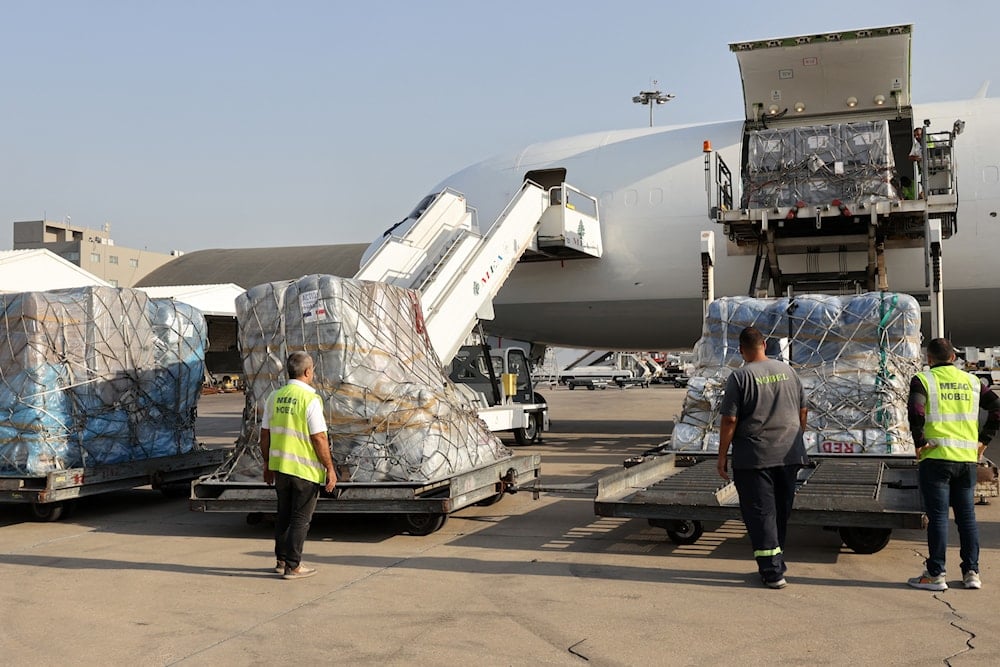UN urges immediate funding for Lebanon as Israeli aggression escalates
The UN called on donor countries to swiftly convert pledges into cash to provide critical food, medicine, and shelter to millions of people.
-

Workers unload a cargo plane carrying humanitarian aid provided by France, on the tarmac of Beirut International Airport on November 1, 2024 (Photo by Anwar AMRO / AFP)
The United Nations warned Friday that its flash appeal for emergency humanitarian aid in Lebanon is drastically underfunded, receiving only 17% of the $426 million needed to address a rapidly escalating crisis.
Jens Laerke, spokesperson for the UN's humanitarian office (OCHA), called on donor countries to swiftly convert pledges into cash to provide critical food, medicine, and shelter to millions of vulnerable people.
"We are facing a rapidly deteriorating humanitarian situation," Laerke stated at a press briefing, adding that the growing needs in Lebanon "cannot be met without rapid disbursement."
Major contributions thus far include $17 million from Italy, $11.7 million from the US, and $9.3 million from Sweden, yet the total is far short of the target.
Despite $800 million in pledges announced at a recent donor conference hosted by France, OCHA warned that without immediate funding, they cannot operate effectively on the ground.
Israeli strikes intensify
This comes in light of intensified Israeli strikes on Lebanon. On Friday, the Lebanese Ministry of Health confirmed that the death toll from the ongoing Israeli aggression has risen to 2,897 martyrs, with 13,150 individuals reported injured.
The Israeli aggression has not only targeted innocent civilians but also protected groups such as journalists and medical workers.
On Thursday, four consecutive deliberate attacks against ambulances and gathering points for medical personnel resulted in the martyrdom of six medics and the injury of more.
Read more: 'Israel' massacres civilians in southern, northeast Lebanon
According to UN figures, "Israel's" aggression has led to a significant outflow of refugees, with more than 460,000 people fleeing to Syria and Iraq, and nearly 843,000 individuals displaced within Lebanon.
"This crisis is displacing thousands weekly," the UN International Organization for Migration reported, with over 18,500 new displacements in the last week alone.
Many are experiencing displacement for the first time, while others are being forced into secondary movement as the scope of the aggression expands.

 2 Min Read
2 Min Read








